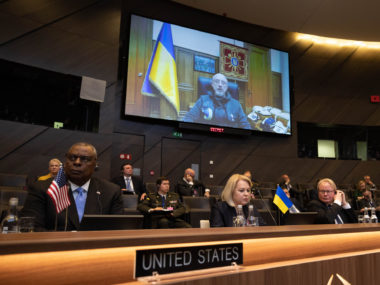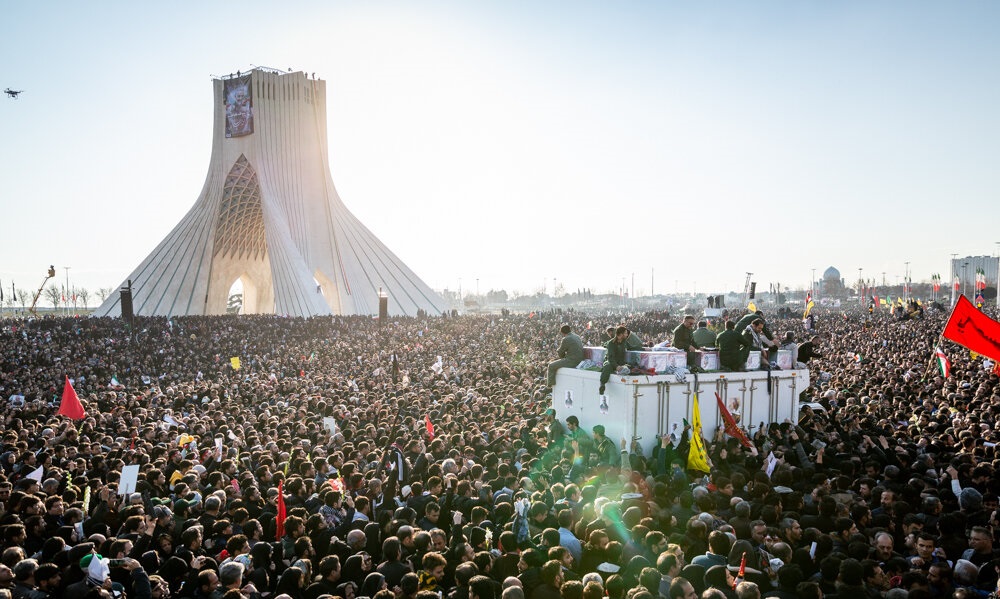Guest post by Sara Bjerg Moller

The most surprising development in last month’s ceasefire agreement between Hamas and Israel may not be how quickly it disintegrates, but rather the Netanyahu government’s acquiescence to the long-standing Palestinian demand that the Israeli Defense Forces halt targeted assassinations.
Item one of the seven-bullet agreement calls for Israel to stop all hostilities in the Gaza Strip, including the “targeting of individuals”. Although not much remarked upon in the international press, the declaration marks a major turning point in Israel’s counterterrorism doctrine.
Targeting terrorists for “extrajudicial punishment” has long been a favored instrument in the Israeli counterterrorism toolbox. While Israel made many concessions as part of the 1993 Oslo agreement (including ending military action against members of the Palestinian Liberation Organization), assassinations targeting Hamas and Palestinian Islamic Jihad members opposed to the peace process continued. The Israeli human rights group B’Tselem estimates that more than 210 terrorists were killed in targeted assassinations during the first six years of the intifada.
According to Palestinian accounts, it was this month’s assassination of Qassam Brigades commander Ahmad Jabari (the man responsible for the kidnapping of Gilad Shalit) that prompted the latest round of fighting. (The Israeli government argues the action was justified by the hundreds of rockets that have rained down on southern Israel over the past year.) Israel’s promise to suspend targeted assassinations, the first of its kind, is therefore noteworthy.
For years, Israel’s stated objective behind their targeted killing policy has been deterrence. As terrorism expert (and fellow contributor) Daniel Byman has noted, Israel believed the benefits of this policy outweighed the costs. Killing the men responsible for the deaths of Israeli citizens sent an important message, one that the government of Israel believed was worth sending in spite of the widespread international opprobrium and reported benefits to terrorist recruitment that inevitably followed every action.
It is an open question whether Israel was prompted to take this action for political reasons (Netanyahu has openly stated that he agreed to the ceasefire after speaking on the telephone with President Obama) or because it believes targeted killings are failing to have the intended deterrent effect.
Part of the confusion may stem from a strategic failure on the part of the Israelis to properly articulate the difference between deterrence and compellence. Though both coercive instruments, the latter, as Nobel laureate Thomas Schelling noted half a century ago, is intended to make an adversary do something. IN contrast, deterrence aims at preventing an adversary from starting something. Israel’s stated policy of targeting killings, designed to compel Hamas to stop firing rockets into Israel, thus falls into the category of compellence.
Despite this confusion, Israeli circles have long debated the merits of targeted killings. On one side stand those who believe it represents the most important method of fighting terror; on the other, those who question whether peace can be won by killing terrorists.
Israel’s decision to shift course — after decades in the terrorist killing business — should be cause for retrospection among American counterterrorism officials debating the merits of drone warfare. Although newer to the game, the US has embraced the killing of al Qaeda figures in recent years, arguing their deaths strike a blow at the global terrorist movement and make Americans safer.
However, American public justifications for the targeted killing policy are made on slightly different grounds than those used by Israel. US officials have emphasized dismantling terror network and punishing those responsible for killing Americans, rather than Israel’s graduated deterrence strategy. Americans have also been slower to publicly debate the benefits and costs of the policy. When former Republican presidential candidate Mitt Romney suggested that America “can’t kill itself out of this mess” in the Middle East, the backlash was instantaneous.
Regardless of whether the ceasefire agreement fails and Israel returns to its policy of targeted killings or not, Israel’s willingness to abandon this tactic in favor of a chance at a truce marks a fundamental shift in counterterrorism doctrine. Should the truce fail, Israel will no doubt adopt the tactic once more. But an important precedent has been set. Today both sides can expect the demand that Israel halt the targeting of individuals to be a requirement for all future ceasefires.
Meanwhile, the likely effect of the precedent will be to provide free rein to Hamas’ senior officials. The group has already vowed to continue to stock weapons during the ceasefire interim, and shows no evidence of an inclination to get out of the business of terror.
As for why Netanyahu would agree to such a condition in the first place, one possibility is that he is playing for time. By acquiescing to Hamas’ terms now, Netanyahu may hope to bank credit with the US president in a future Palestinian (or Iranian?) crisis.
Given this dramatic turnaround we should be asking ourselves whether Israel’s changed stance reflects just another effort in a long line of attempts to reach an agreement with the Palestinians or whether the Israelis may know something we don’t and, after decades of being in the business of killing terrorists, no longer believe the benefits outweigh the costs.
Sara Bjerg Moller is a Ph.D. Candidate at Columbia University and a Research Fellow at the Mortara Center for International Studies at Georgetown University.







1 comment